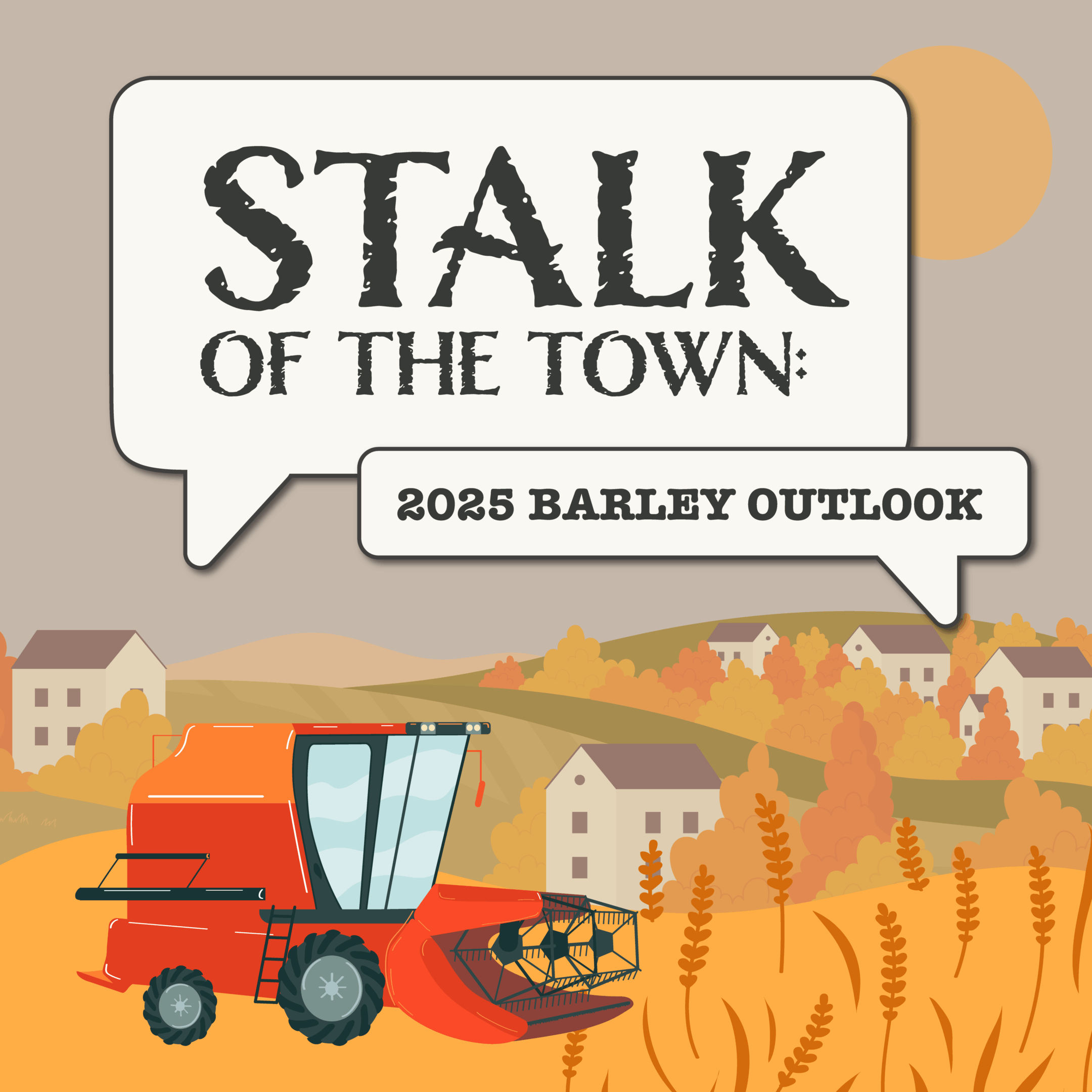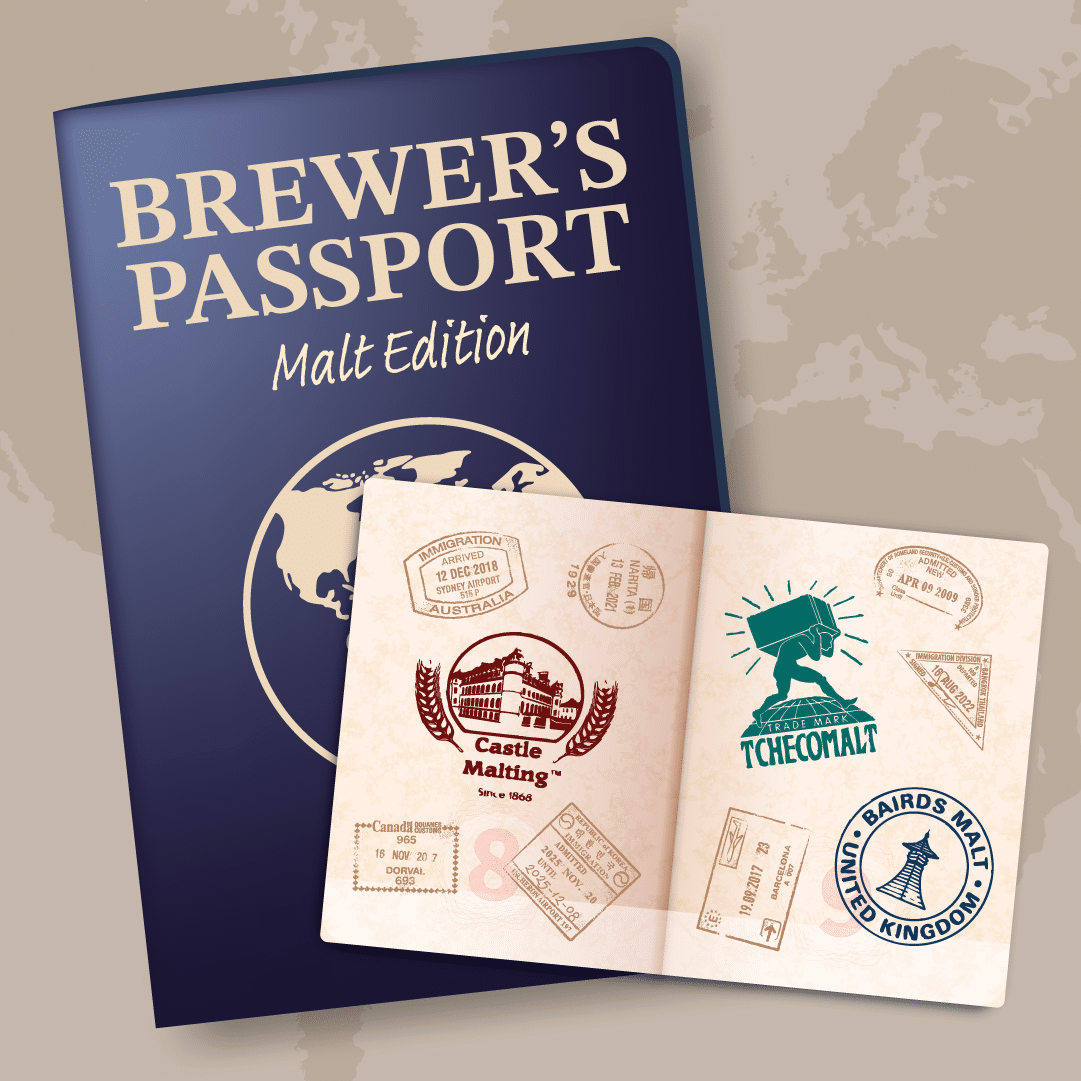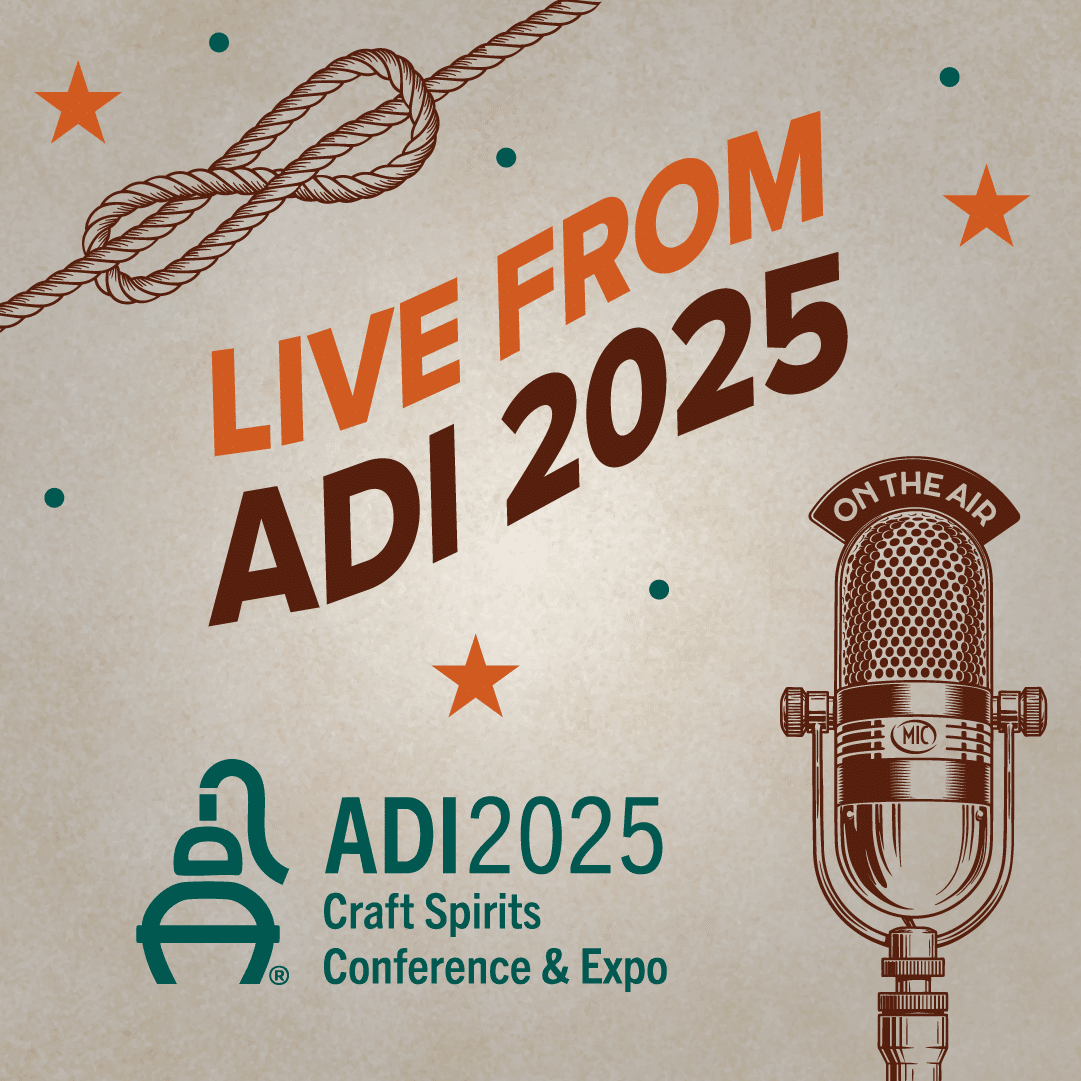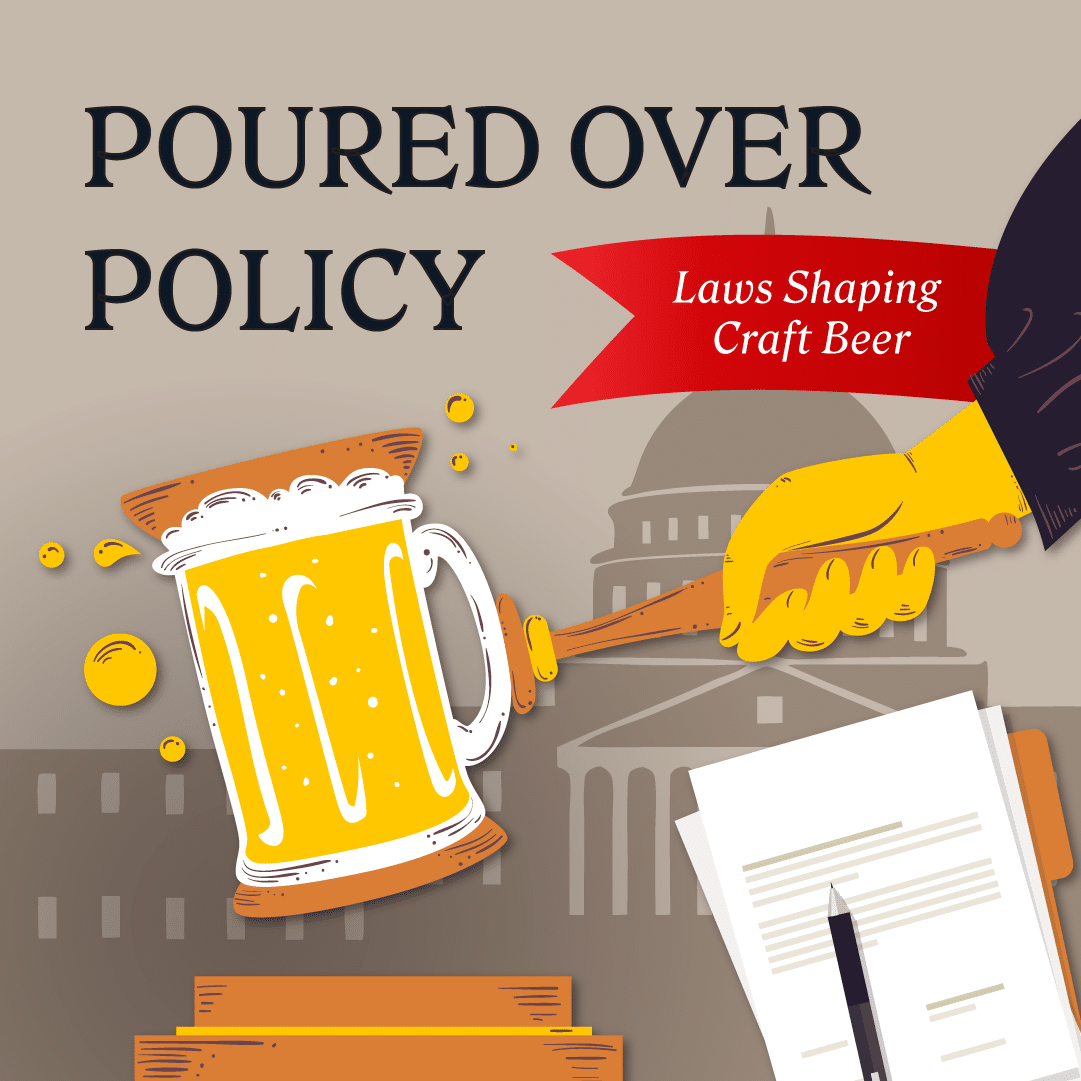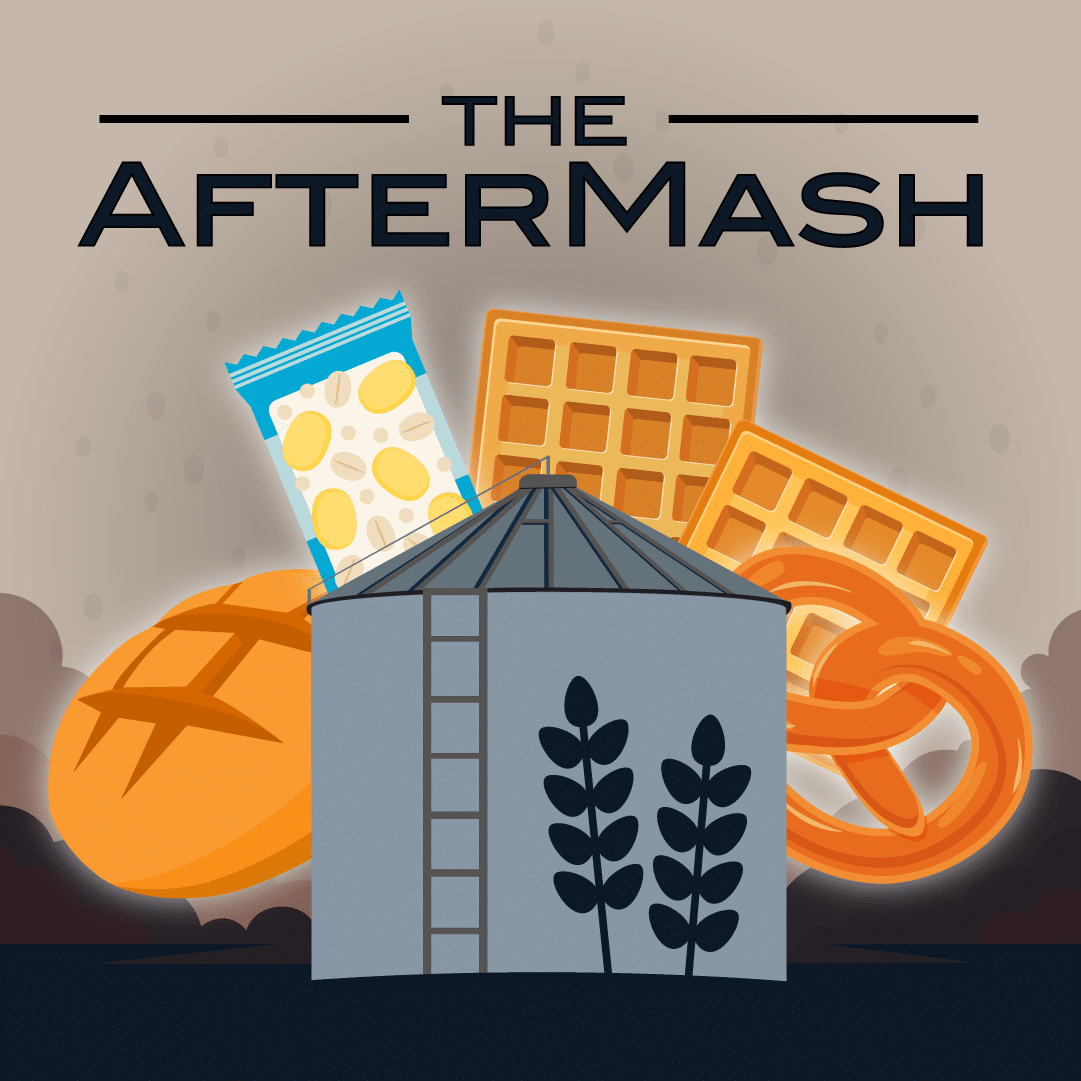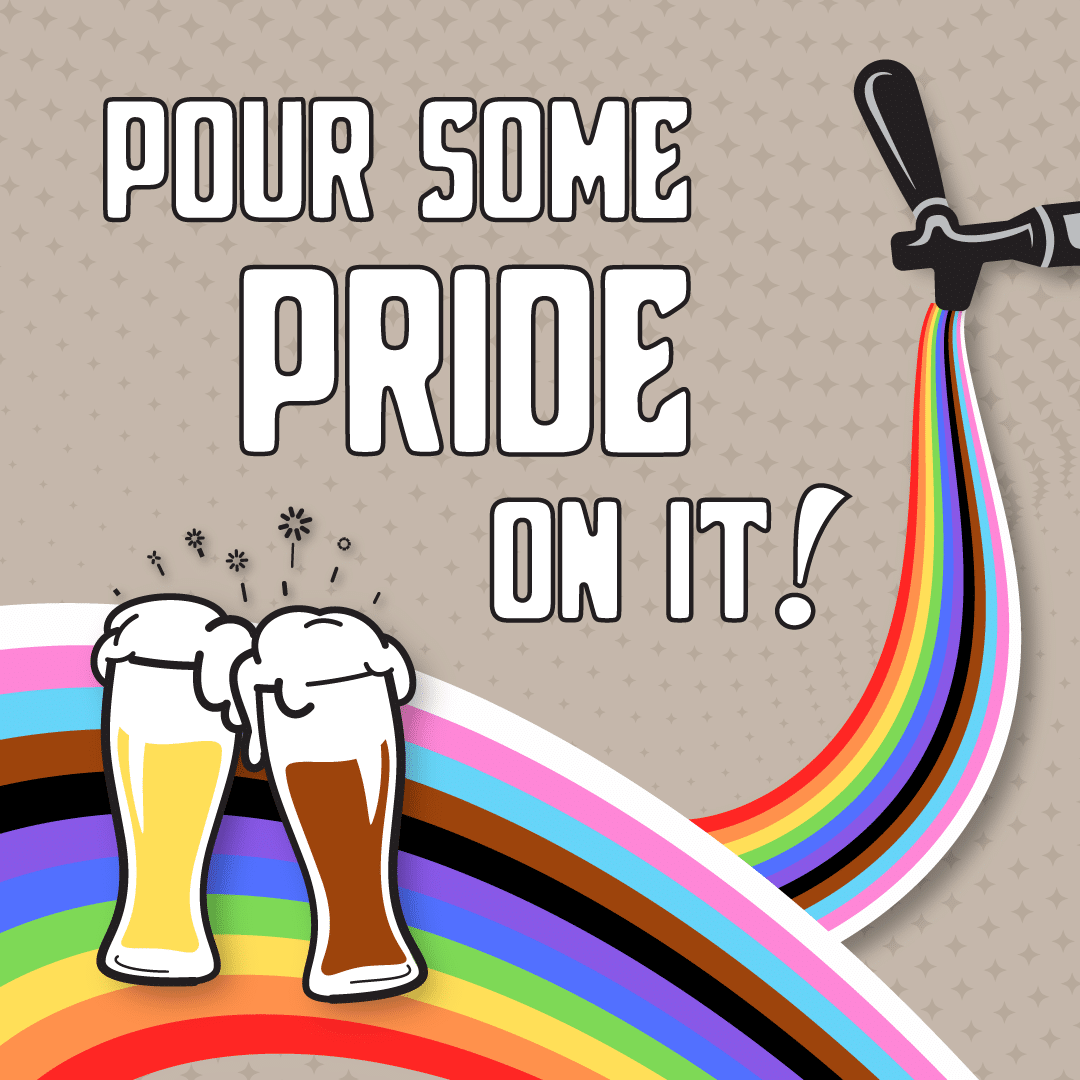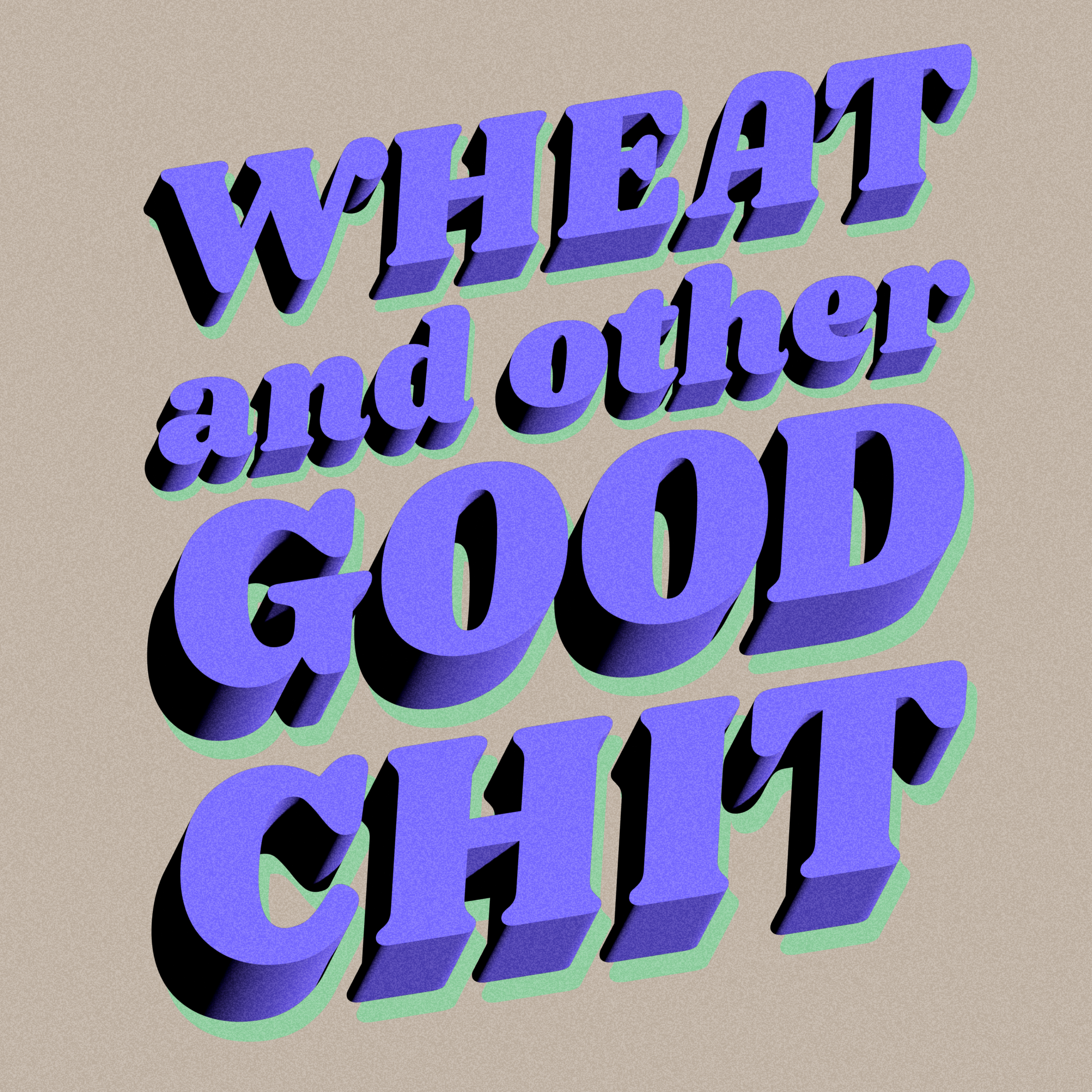
PODCAST GUESTS
Ayla Kapahi
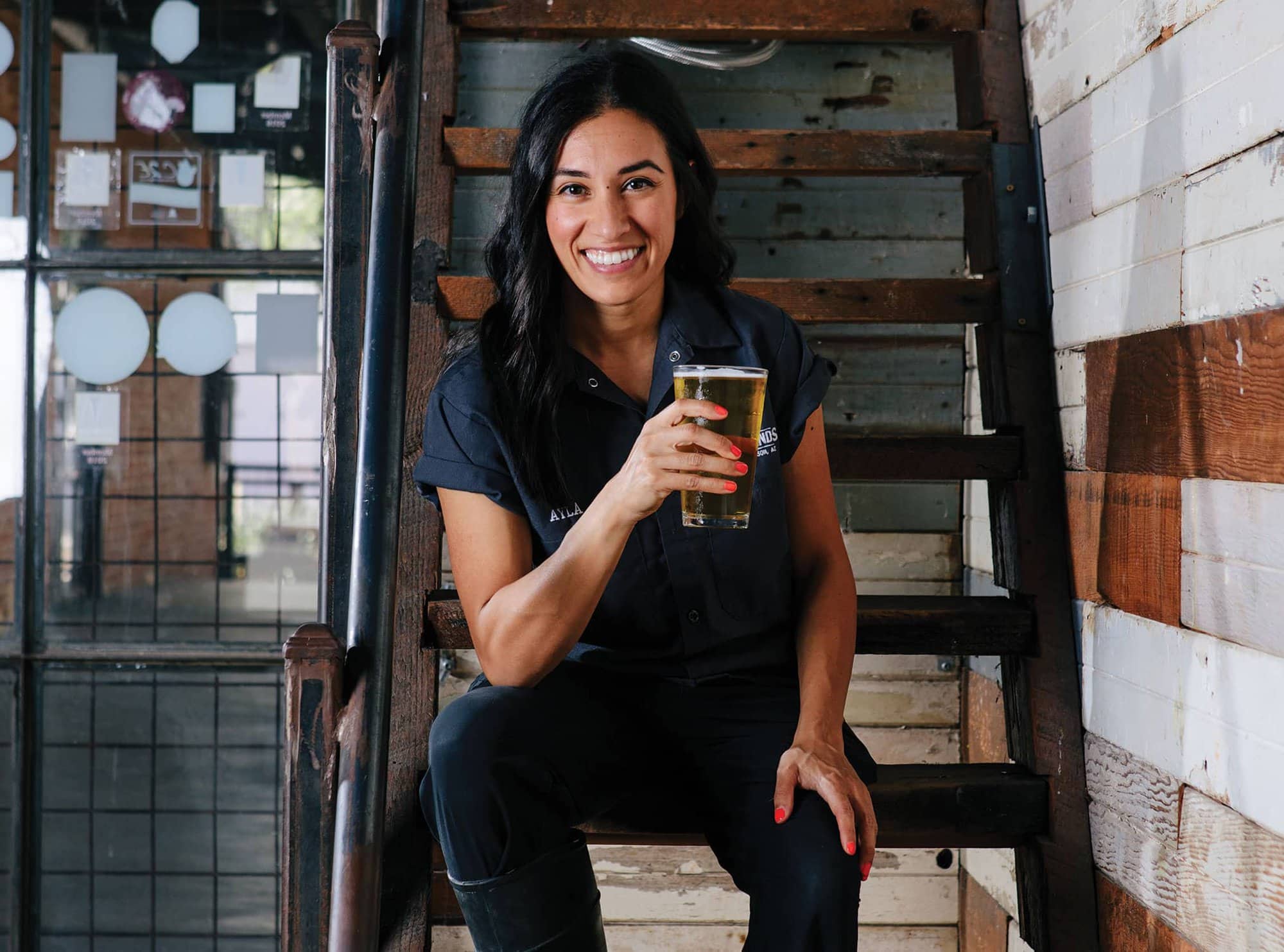
Photo credit: Grace Stufkosky
Savanna Saldate
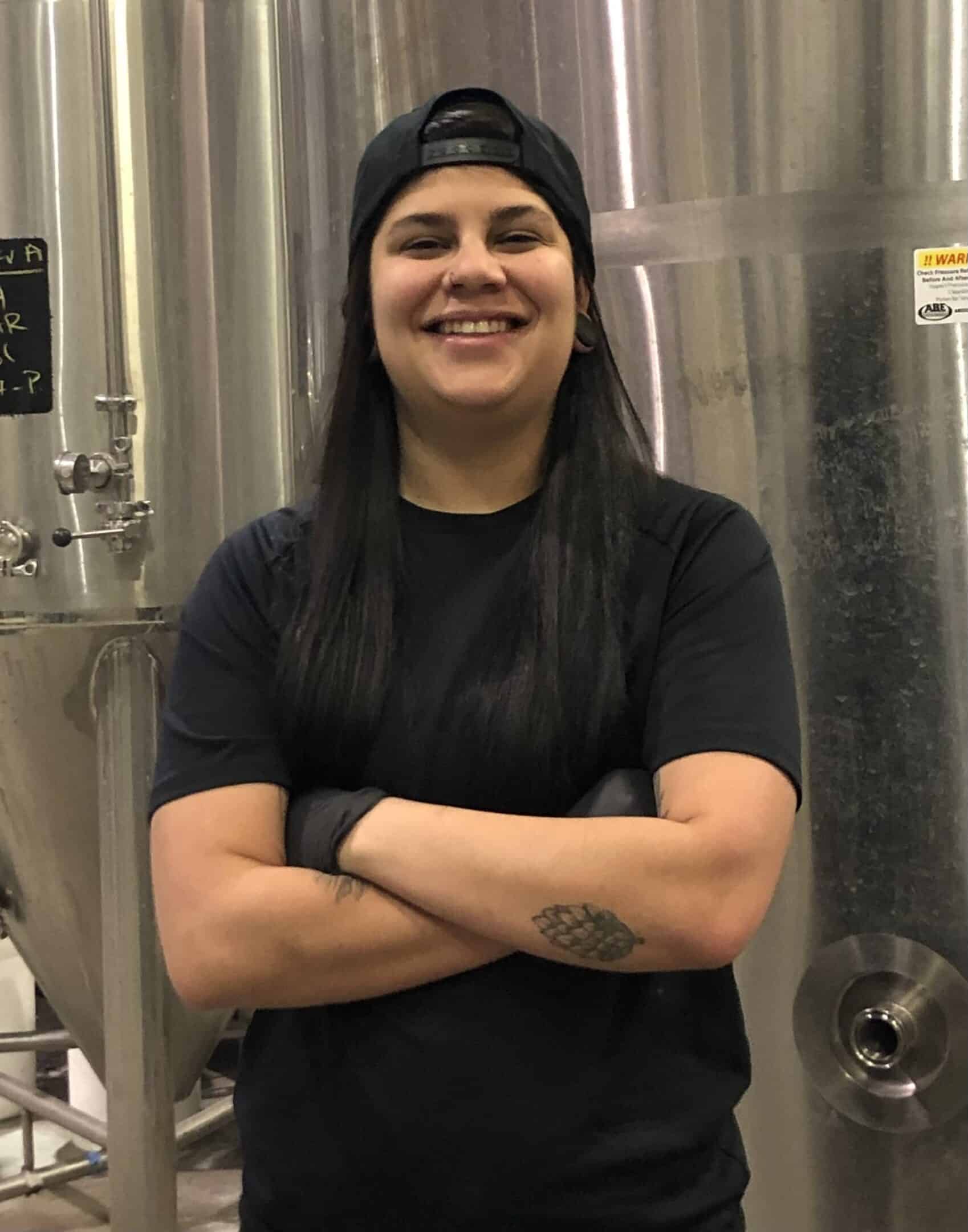
Sharon Ruyter
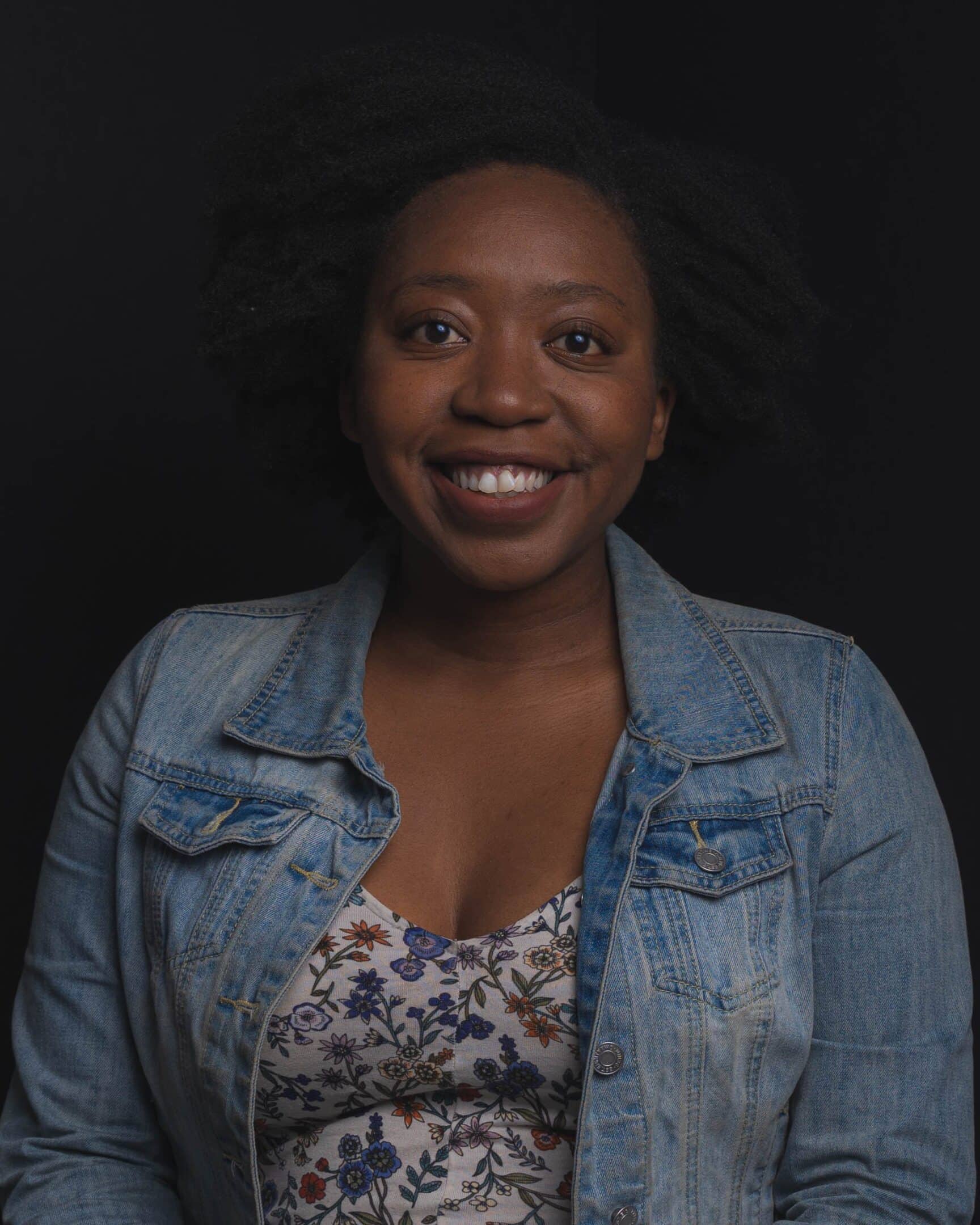
Erin McQuitty
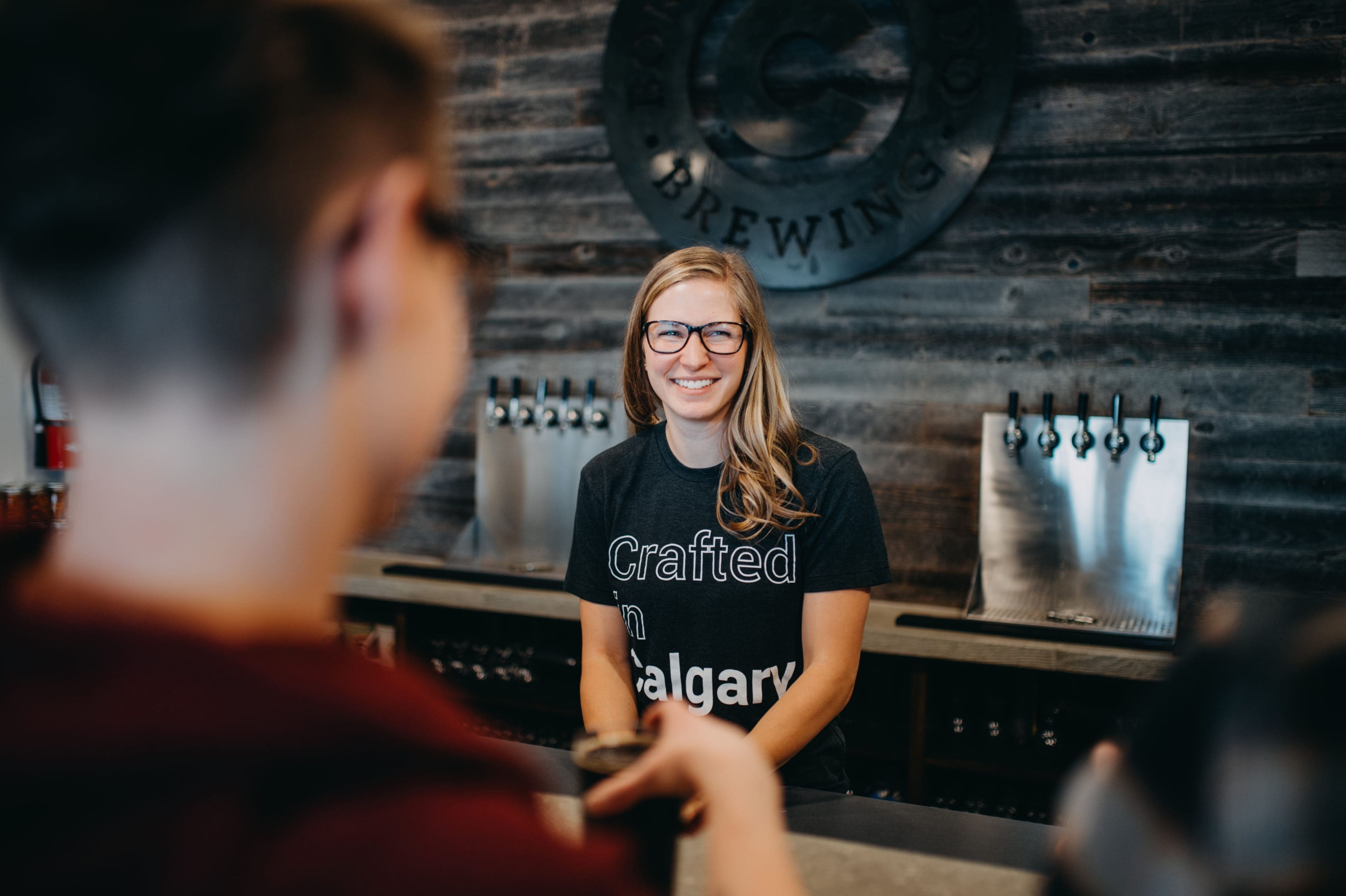
MORE EPISODES
SEASON 5, EPISODE 5: REVOLUTIONARY WOMEN
PODCAST HOSTS:
HEATHER JERRED – TERRITORY MANAGER, COUNTRY MALT GROUP
CHEYENNE WEISHAAR – INSIDE SALES REPRESENTATIVE, COUNTRY MALT GROUP
GUESTS:
AYLA KAPAHI – DIRECTOR OF PRODUCTION, BORDERLANDS BREWING COMPANY
SAVANNA SALDATE – HEAD BREWER, BORDERLANDS BREWING COMPANY
SHARON RUYTER, FOUNDER & CO-CHAIR, HOP FORWARD SOCIETY
ERIN McQUITTY – FOUNDER & CO-CHAIR, HOP FORWARD SOCIETY
Key Points From This Episode:
- What is the Las Hermanas project?
- Why was the Las Hermanas project started?
- How can people get involved and support the Las Hermanas project?
- What is the Hop Forward Society?
- What is the mission of the Hop Forward Society?
- How can people apply for grants from the Hop Forward Society?
- What events does the Hop Forward Society host?
- How can people get involved and support the Hop Forward Society?
Transcript - Revolutionary Women: They're Everything, He's Just Ken
EPISODE S.5, E.5
[REVOLUTIONARY WOMEN]
Heather (00:09):
Welcome back to another episode of The BrewDeck Podcast. I am your host Heather Jarrett, joined of course by my amazing co-host Cheyenne. How’s it going, Cheyenne?
Cheyenne (00:19):
I’m doing great. How are you doing, Heather?
Heather (00:23):
I’m doing pretty fantastic. I’m super excited about this episode. I think I say that a lot, but I am.
Cheyenne (00:28):
You do say it a lot, but this one is a really special episode and we have some really awesome guests, so I’m very excited.
Heather (00:36):
Today we are talking to some revolutionary women in the craft brewing industry who are doing some really, really cool things. Before we jump into that, if you didn’t catch our episode, our last episode, we introduced you to the Pink Boots Malts. So go back and take a listen to that. These Pink Boots Malt is now officially in every warehouse, so make sure to reach out to your sales rep. Proceeds from all the sales go to the Pink Food Society, and that helps to promote scholarships and educational funds for women and non-binary individuals in the brewing industry.
Cheyenne (01:13):
Yeah. So today we have a couple of really awesome guests. It was great to record with them. I learned a lot. We’re talking with the brewers over at Borderlands Brewing in Tucson, Arizona. They do the Las Hermanas project, which is an international brewing project to expand the borders and share educational resources with the female brewers in Mexico. So we get to hear from them. And then we also talk to the founders and co-chairs of the Hop Forward Society, which I just learned about is really awesome. Heather, you kind of are already familiar with them.
Heather (01:46):
Yeah, they are actually in Alberta, here in Canada. I have them introduced their society before, but it’s really cool to get to sit down and talk with Sharon and Erin about all the cool things that they’re doing there.
Cheyenne (01:59):
Yeah, they’re doing some really cool stuff for the Alberta community, so stay tuned and take a listen.
(02:05)
All right. Well, we are very lucky to be joined today by Ayla and Savannah at Borderlands Brewing in Tucson, Arizona. I’m going to toss it over to you guys to introduce yourself. Ayla, can you tell us a little bit about yourself and how you got into the industry?
Ayla (02:19):
Hey, Cheyenne. So happy to be here. Thank you for having us. I have been in the craft beer industry for eight years. I originally started, like many folks, with a hobby in home brewing, and I actually ended up leaving a career in academia eight years ago to do something different, something that felt more true to myself, and that’s when I started in craft beer. I started with a nano brewery, worked on a two barrel system, and really just worked my way up from cleaning floors, scrubbing kegs, and doing everything I could to learn how to brew commercially.
Cheyenne (03:02):
It’s always so interesting to hear the previous lives that people lived before they got into craft brewing. And I would say that you haven’t really left academia, have you? Because you’re back in school.
Ayla (03:14):
I’m back in school again eight years later.
Cheyenne (03:17):
Yeah. Can you tell us a little bit about that?
Ayla (03:20):
Yeah. I am in the process of finishing my MBA through Eller’s College of Management at the University of Arizona where I previously was before almost a decade ago. A lot of my beer experience has been just so wonderful to me. I think learning more about my place and my role in the beer industry. I always tell folks that the most rewarding position I’ve ever had in craft beer was when I was beer tending because that’s when I really got to manage a lot of front of house, understand customers preferences, and just get to know the community. So I’ve always really been interested in understanding the business side of beer as well as the technical aspect. So that’s why I’m pursuing my MBA at this time to get my foot in the door more with the business side of things.
Cheyenne (04:17):
That is so cool. It’s not like you’re not doing enough at this point, right?
Heather (04:21):
Just throw an MBA in there. No big deal.
Ayla (04:23):
Yeah, I have so much free time. Uh-huh.
Cheyenne (04:28):
Well, that is very cool. We’re super happy to have you join us. And then let’s toss it over to Savannah. Can you introduce yourself and tell us a little bit about how you got into the industry?
Savannah (04:36):
Yeah. Good morning, y’all, and thanks for having me. My name’s Savannah. Similar to Ayla and many people’s story, I also went to the U of A and actually have a social work degree, and now I’m making beer. I didn’t know much about craft beer until later in my life. I was a very macro brewery beer drinker, and then I moved to Michigan, which we all know has very saturated beer scene, some of the older, bigger breweries, founders bells, so it’s kind of hard to ignore craft beer there. And then, yeah, started beer tending when I moved back to Tucson, started beer tending, was curious about back of house, started doing a few things back of house, and then got an opportunity to move fully back of house full time and loved it ever since.
Cheyenne (05:25):
That is so cool. You and Ayla have been working back of house together for quite a while now, right?
Savannah (05:31):
Yeah, six years or so.
Cheyenne (05:36):
And you keep going. That’s awesome.
Savannah (05:39):
Yeah, we’re pretty efficient little crew over there.
Cheyenne (05:41):
Yeah, you really are.
Savannah (05:42):
I enjoy it a lot.
Cheyenne (05:44):
I’ve actually gotten lucky enough to have gotten to brew with both of you at Borderlands, and it’s a very cool little system that you guys have going on there. So we’ll get more into that. But we’re here to kind of pick your brains. You have a very cool project that both of you are working on, you have been working on for the past couple of years. So let’s just jump right into it. Can you tell us a little bit about Las Hermanas and what that is?
Ayla (06:08):
Yeah. So Las Hermanas is our passion project really. So both Savannah and I we’re interested in social justice and social work in our previous careers, and we were determined to find a way to have that manifest into what we do in beer. So the Las Hermanas project is actually Arizona’s first bi-national all women’s collaboration brew. The way it works is, we have two brew days that take place, one here in Tucson at our facility and another in a city in Mexico. For those who don’t know, there are a lot of really amazing, talented women brewers all throughout Mexico. That’s something I didn’t know until we started working with our colleagues in Mexico four years ago.
(07:00)
But in this international brew day, we host women at our facility here, and then we actually turn around and travel to the respective facilities in Mexico. At this point in time, the project has taken place in Monterrey, Nuevo Leon, Mexico, which is just south of Texas. We were in Mexico City about a year and a half ago, and we were in Guadalajara just about six months ago. So every year, the project is just expanding and expanding. In the largest iteration, we’ve had almost 80 women brewers involved. I think that was when we traveled to Mexico City actually. So it’s so rewarding.
Cheyenne (07:42):
Wow. It’s almost unheard of in the industry at this point to have something of that scale, international brewing collaboration. So that’s really cool that this is something that you guys are doing. Can you tell us a little bit about the planning that goes into something like that? I know that you both have a heavy hand in all of the planning and the coordination. Can you tell us about that?
Ayla (08:04):
Yeah. So the way something like this works is, when you’re dealing with another country, there are a lot of moving pieces involved, and I think Savannah and I are sometimes kind of the folks who we think, “All right, let’s pursue this project,” and you get into it and you’re like, “Wow, this is a lot of work. We need help. We need to call our friends at Country Malt. Can you help us?” Which is what we did. So really at this point now, it involves coordination and working with, we work a lot with tourism groups. Visit Tucson is the biggest one here in southern Arizona. We do work with the Mexican Consulate of Tucson, the U.S. Consulates and Embassies in Mexico as well.
(08:47)
So there is quite a bit of coordination, but honestly, in a lot of ways, the project has been easy in the sense of connecting with the women brewers in Mexico because women in Mexico have very strong communities surrounding women in beer. I don’t believe they’re necessarily Pink Boots specific, but we’ll work on that. Our goal is always to have the project a hundred percent sponsored, and that’s why we have amazing, amazing sponsors like yourself at Country Mall Group and Yakima Chief Hops, because we use the proceeds of the beer for the following year to aid in travel costs, accommodation costs, and basically don’t want money to be a barrier for women to participate in each respective brew day.
Cheyenne (09:45):
Wow. Yeah. That’s so cool. So you had mentioned that you had had at one point up to 80 participants who are joining you for the brew. Can you tell us a little bit about how does any of the brewers, how do they become involved in the brew day? How do you, I don’t want to say pick, but how do people become involved and get to participate in the brew day with you?
Savannah (10:07):
I mean, as you can imagine, everybody really wants to be involved, so it’s not very difficult to get participants. But yeah, there’s not really a limit on who can be involved. Also, you don’t have to be a brewer. You can be anywhere in production, you can be social media, you can be the home brewers, so you’re not really limited. I think the biggest limitation that we face is who can come to the brew day in Tucson based on who’s able to travel, get their visas approved. Things like that is more of a barrier in Mexico. It doesn’t seem to be such a barrier for them to all get together. But yeah, it’s not hard at all to get everybody involved and get everybody talking and in the conversation.
Cheyenne (10:55):
That’s very cool. When you do the brew down in Mexico, that’s very cool because like you said, it kind of allows an opportunity for folks who might not be able to travel up to the States to then join you in Mexico to do the brew. How do you coordinate who’s going to host the brew in Mexico?
Ayla (11:15):
Honestly, we let the collective decide, so majority rules. We always ask women in Mexico, where should we travel to next? And they tell us. So we’re excited to hear what they have to say this year, although I do think we are planning to be in the Baja area this year.
Cheyenne (11:36):
Oh, cool. That’s awesome.
Savannah (11:38):
We also call on them to make sure that we’re brewing at facilities that align with our beliefs and align with the Borderlands’ brand. We don’t know a lot of the breweries or reputations there, so we rely on them heavily to make sure we’re brewing up facilities that align with our-
Heather (11:58):
Values.
Savannah (12:00):
Values. Yes, exactly. Thank you.
Heather (12:01):
That’s awesome. Do you change up the recipe every year, or brewing something different every single year?
Savannah (12:09):
Yeah, that’s also just a casual conversation that we have with whoever’s participating. We can do anything from, last year we made a Vienna lager because lagers sell really well in the region of Mexico that we were in, or we can be as experimental as we want. It just depends on the brewery and what the women want to make. Of course, everybody here wants an IPA, so we did an IPA a few times. But yeah, it’s really up to just whatever the women are feeling and whatever we want to make that day.
Heather (12:41):
That’s really cool. So you will have another one coming up this year as well. Do you round what time of year do you plan on doing that?
Ayla (12:51):
At least for the Tucson brew day, we love to release the beer at the start of Hispanic Heritage Month here. That kickoff is usually mid-September. So depending on the style of beer, we might start brewing in July or August. Of course, for those who know, again, we are in Tucson, so it is a tough time of year to be here. So really hats off to everyone who joins the brew day, but that’s usually when you can expect it as a fall release. And for the release in Mexico, we do leave it up to them to see if they wanted to align with any specific events that they have going on in their city.
Heather (13:32):
Neat. So let’s jump back into the actual brew day again. I hear you guys do some educational components throughout the day.
Ayla (13:42):
Yes. So we are so excited and so proud of this. I think every year that we conduct this collaboration, which we’ve done it three times now, we are always looking for ways to improve the project to expand it and to add something new. The first year we had the brew day. Second year, we said, “Okay, how do we make this even bigger? I know. Let’s put on a free half-day technical workshop for folks visiting.” It became increasingly important to us to include an educational component. That’s what a lot of the women we work with had been requesting, especially women in Mexico were saying that they didn’t necessarily have access to very many technical workshops or seminars. So we do, on behalf of our very generous sponsors, ask them to donate their time as well for putting on some type of a technical seminar.
(14:43)
Last year we very proudly expanded on the technical component, and we really thought about, “Okay, what else are the needs of the women participating in this program?” And we really realized, “You know what? The technical conference is important, but there are other social aspects of this that we think need to be addressed as well.” So just last year, we started working with the Pride and Joy Foundation in Phoenix. They’re an LGBTQ+ nonprofit that supports women and minorities in different realms of life really. The wonderful Elena Joy Thurston came down and put on a very hands-on workshop to really talk about empowering women. And at the end of the workshop, everyone who attended were able to go home with concrete tools to help them navigate their workplace or even outside of work. It’s just really wonderful. So we’ve been really excited to think outside of the box and include other types of workshops that are relevant to the project that we’re pursuing.
Savannah (15:59):
Also, to piggyback off of that, as much as we teach them, so to say, they also teach us. All of us I think are learning all the time. I think there’s this misconception about Mexico and about their facilities or about women brewers. They face the same struggles that we tend to face here, but we learn so much from these women. A lot of them have technical brewer training or they’ve gone to school for brewing sciences, so as much as they are learning at these seminars, and shout out to Cheyenne and Brittany who actually did one of these a few years ago, as much as they’re learning from these seminars, we’re also learning from them as well.
Heather (16:48):
That’s wonderful. Do you know what their brewing school situation is down in Mexico?
Ayla (16:55):
My understanding is, many of them have completed their degrees in other countries, especially their internships. So many of them have talked to us about working throughout Europe, working in Germany and Belgium. We know many women who’ve completed their internships there, but we have to ask more to see if there are brewing sciences programs offered in cities in Mexico.
Heather (17:24):
Just going over to Germany and Belgium to learn about beer, that sounds terrible.
Ayla (17:29):
Yeah, no big deal. We always talk to them and say, “So this is how it works in the States. Usually you say, five home-brewed, I have some money. I can open a brewery. I know how to run a business,” and you kind of just figure it out. So really, truly, as Savannah has pointed out, we have learned so much from our women colleagues in Mexico.
Heather (17:54):
That’s so wonderful. Okay, so I’m going to ask this question. You can say yes, no, or stay tuned. Are there plans to expand said program to include maybe other countries?
Ayla (18:10):
Yes, because we get bored and we don’t like to settle for what we’re already doing and say, “Let’s make it bigger.” Let’s have more impact and get more women involved because that’s the best way for all of us to learn from each other. So yes, we have the goal of putting on a North America’s tri-national brew, and that would of course be a partnership between Canada, the US, and Mexico. It’s something that hopefully we could achieve this year, but at the very minimum it will be happening in 2025.
Heather (18:49):
Wow, that’s amazing. As the token Canadian on the team, I like the sounds of this. How can people that are listening kind of get involved and help to support this program?
Ayla (19:04):
Honestly, probably the best ways would be to contact Savannah and myself through social media, even through Borderlands social media. So we’ll share all that information for emails, LinkedIn, our brewery websites. We’re very responsive. And we are in the process of trying to get the Las Hermanas project to be a 501(c)(3) nonprofit. So we’re in the process of that, and hopefully it’ll go through this year. That way, it’ll also be an easy way for folks to donate to the project if they want to support it.
Savannah (19:44):
Yeah. Also, I think just word of mouth. The more people we talk to, the more and more interests that we get. I think this is a very cool project. Usually when I speak to people, they think it’s a very cool project, and then we end up finding breweries we didn’t know about, networking with people who we hadn’t talked to before. Amazing people like Country Malt and Yakima, everyone who donates that is donating the yeast, donating the hops, donating the grain, all of those things help us tremendously.
Heather (20:16):
It’s awesome. Is there social media? Does Las Hermanas have a social media? Or could we plug your social medias here?
Savannah (20:24):
Las Hermanas does have an Instagram page. I believe it’s literally Las Hermanas. I know that there is an Instagram page for them. I personally have an Instagram page, Ayla as well. Borderlands Brewing has an Instagram page. So I think we’re really covered on the social media.
Heather (20:41):
Social media. Perfect.
Savannah (20:41):
Absolutely a way to get a hold of us.
Heather (20:43):
So everybody can pay attention to those and they can see what’s coming up as well.
Ayla (20:48):
Yes, exactly. That’s where we’re going to post updates. To be honest, we have a lot of internal communications with our brewery network and our now very large women colleague network throughout the US and Mexico. So if this is something that you would like to be involved in, please don’t hesitate to reach out. In our minds, the larger this project is, the more minds and skill sets that we have working on it, the better it’s going to be because we believe that’s the true meaning of diversity, is involving people who have different life experiences, different skill sets, and different ways of navigating the world. So those contributions are only going to help us grow and help us continue to learn.
Heather (21:36):
That’s so wonderful. Well, thank you both so much for coming on and for putting on such a cool program and just working to create this community of women in brewing cross-border. It’s amazing.
Savannah (21:50):
Thank you so much for having me.
Ayla (21:52):
Thank you so much, Heather and Cheyenne. We love Country Malt, of course, not only as one of our largest sponsor from the project, but you all know you are number one vendor for all of our brewery needs. So it’s been so incredible from the start of just asking Country Malt if they were interested in getting involved. The enthusiasm and the way that you’ve been able to help us grow the project is just been wonderful. So thank you so much. We’re honored to be here.
Heather (22:22):
Oh, we’re honored you asked us.
(22:25)
We are now extremely lucky to be joined by Sharon and Erin, which is really fun to say, I’m going to say it, from the Hop Forward Society, both founders and co-chairs of the Hop Forward Society. Before we jump into talking about what the Hop Forward Society is, I’d love for you both to introduce yourselves. Erin, let’s start off with you.
Erin (22:46):
Thanks, Heather. My name is Erin McQuitty. I’m one of the owners of Born Brewing Co. in Calgary, Alberta, and I am also one of the co-chairs of the Hop Forward Society. I got into the brewing industry with my partner when we opened up our brewery in 2018, and I was fortunate enough to meet Sharon in 2020. We started to work on the Hop Forward Society, pardon me, with a group of other folks here in the Calgary beer industry, and we’ve been working on it ever since.
Heather (23:17):
That’s amazing. And I will say, we have had Erin on the podcast before. I believe you were on one of our Pink Boots episodes a couple of years ago too, talking about the beers that were made for the Pink Boots Brew. So welcome back.
Erin (23:30):
Thanks.
Heather (23:31):
Sharon, tell us a little bit about yourself and how you get into the industry.
Sharon (23:36):
Yeah, hi. I’m happy to be here. I am a marketing and communications manager here in Calgary. I do not work in the beer industry. I’m just a really big beer fan. Just got into craft beer about 10 or so years ago, and really fell in love with it and the spaces and the community associated with it. Back in 2020, like Erin said, we sort of joined forces, just really fueled by our own passions and personal interests and values to contribute to beer a little bit differently. And now here we are, now co-founded and co-chaired the Hop Forward Society.
Heather (24:20):
Well said. Well, why don’t you introduce us to the Hop Forward Society?
Sharon (24:26):
Sure. So Hop Forward Society started a few years ago after the murder of George Floyd. Me personally as a Black woman, I was obviously very closely impacted, I guess, by everything that was going on and the resurgence of Black Lives Matter movement, especially here in Calgary. There was so many breweries posting, which is really great, their support for Black lives and their support for their communities. I was just really fired up, and I started tweeting to some of the beer owners and breweries that I love so much, just asking what does that mean? What does it mean to show support for our Black lives? What does it mean to show support for the Black community?
(25:14)
I got really great responses, and one of those responses actually was from Erin from Born and kind of slid into my DMs, and we started chatting and we decided to meet for a beer. She was so gracious to invite me down to Born and have some beers and just talk about what mattered to us and about the work around increasing diversity in beer. And that kind of snowballed into us getting together with other community members and owners in Calgary to talk about how we can make an impact in the beer industry in terms of increasing representation and diversity and inclusion in the industry. And that led to us founding the Hop Forward Society, which is run by community members, but also people who work in the beer industry. So it’s really, I would say, balanced of both sorts of worlds coming together to try to make a difference.
Heather (26:12):
So no big deal if you just did something small.
Sharon (26:17):
Just a little bit.
Heather (26:18):
Just a little bit. Can you talk about what the mission of the Hop Forward Society is?
Erin (26:25):
I can take this one. So when we sat down initially, we thought about creating a scholarship, and that’s kind of where our thoughts went to immediately. And then we thought about that a little bit further, and we decided that that sort of limited the audience of who this might impact. Not everyone has the means to go back to school and not everyone really needs to go back to school for a formal program to work or access this industry. So that got us thinking and we thought perhaps a grant program would be a better use of our funds and just a way to make that more accessible.
(26:58)
So we have sort of two spheres that we work in with Hop Forward. We’ve got our grant program, which we award once annually to three different folks who are working on making a positive impact in the beer industry. And then we also have more of a community engagement piece, which is our run through events, which are hosted both for community members at breweries to help people have access to breweries who maybe don’t see themselves in those spaces yet. And then also to host events for our business members, so breweries, restaurants, folks in the hospitality industry, to help educate them on how to make their businesses more accessible. Our main focus for Hop Forward, because there is so much great work happening with Pink Boots and a few other organizations for women and beer, we decided not to make that a focus of our organization. So we focus solely on folks from the BIPOC community, the LGBTQ community, and people with disabilities.
Cheyenne (27:57):
That’s very cool and very much needed in our industry for sure. Can you tell us a little bit about how folks can apply for the grants?
Sharon (28:05):
Yeah, for sure. So the grants that we offer, we offer two type of grants. So one of them is a thousand dollar grant that can be applied for at any time. And this is just for someone who might have a larger project or larger thing they’d like to contribute to. And then we also have a micro grant of up to $500. So it can be $500 or less that folks can apply for. There really is no limit or requirements to what you can do with a grant. Really, the main thing that you have to show is that you want to positively contribute to the beer industry in some way. So it’s just a simple application online.
(28:52)
People have done different things. You can write an essay, you can submit a video. You can do basically whatever you want, just show us how you want to contribute to the beer industry. So we’ve gotten some really cool applications from people that really span the breadth of what someone could do to be able to contribute to the beer industry. So not just for people who want to brew beer, but you could be working in marketing, you could be working in agriculture. Whatever it may be, you just have to want to give back to the craft beer industry in a meaningful way.
Heather (29:27):
I think that that’s amazing that it reaches outside of just the actual brewing aspect of it because Erin and I were together a couple of weeks ago, and we were asked to talk about our journeys in the industry. Obviously both of us have been working in the industry a very long time, neither one of us being a brewer at any point in time. So I think it’s really, it’s nice to get all those other aspects of the industry in there. Can you tell us a little bit about any of the past recipients? I know they’re up on the website, but can you plug some of the cool stuff that has been going on?
Erin (30:01):
Definitely. So we have had a few folks who were currently attending the Olds brewmaster program, so we definitely have seen a few applications from folks in that program that are going to leave and become brewers. But most recently, we had a grant recipient who their project focused around creating stock images that breweries or brewery adjacent businesses could use on their social media and on their website that would profile folks from the BIPOC community, the LGBTQ community, and people with disabilities, so that our Instagram feeds and our websites are not just reflections of who we see in the industry currently, but rather who we’d like to see in the industry moving forward. So that was a really neat project. She used those funds to hire models, make sure she had the right equipment and editing platform for the photos. Those stock images are now being hosted online for free. So folks that are members of Hop Forward or otherwise can actually go and download those images and use them, which is very neat.
(31:02)
And then we’ve also had some folks who have used the funding for additional training, so things like their sister-owned training, beer judging, that kind of thing, so that they can help to educate that next generation of beer folks and then also act as a bit of an ambassador for people who perhaps don’t currently see themselves in the industry.
Heather (31:24):
Awesome. That stock photo, it’s just something I would’ve never thought of. I think that’s such a cool idea.
Cheyenne (31:31):
It’s a very cool idea and definitely something that I think is new to the industry and new to the community, and it’s awesome that your members and your recipients are doing that.
Erin (31:41):
Yeah, we thought it was really neat for sure. I think that was a huge part of why we wanted the grant to be so open. I think that can be a little intimidating for folks. There’s not really a specific way to use those funds, and there’s not a specific way to apply, but we didn’t want to create barriers where there didn’t need to be barriers. And we also felt like people’s creativity is usually, they can come up with way cooler stuff than we can come up with. So we’re happy to give them some ideas of what they could do, but really the world is your oyster.
(32:10)
You could be an accountant that really just has a passion for beer and wants to work in the beer industry, and perhaps you need a different certification or you want to learn more about excise tax or something like that, or you could use it for that. Or like Sharon said, you could work in marketing. Maybe you’re an artist and you want to design a beer label, so you want to use some of the funds to create a bit of a portfolio. There’s really no limit to what that funding can be used for.
Heather (32:36):
So you mentioned briefly about the events. Can you tell us a little bit, A, what’s coming up, and B, what are some really broadcast events that you’ve got to host?
Sharon (32:49):
Yeah, we’ve hosted quite a bit of variety of events, which is really cool. And this has gone towards our goal of really not just focusing on people who work in the beer industry, but also people who just like beer and kind of want to come into taprooms and might feel intimidated or might not feel like the space is for them. So we have hosted a series of educational lunch and learns for brewery owners that are focused on different areas of diversity inclusion. So whether it be incorporating more queer friendly practices into your taproom or how to increase diversity or policies around DIA in your business. We’ve done those, but we’ve also done some really cool community events, just bringing people around, having interesting conversations in taprooms.
(33:38)
We have hosted community conversations here in Calgary where people just got to share their experiences about belonging and being accepted into different spaces. We just recently actually hosted an event in February that’s specifically for racialized women who want to just come hang out, drink some beer, learn. And we actually did that at Born Brewing, and that was a bingo night, which was really fun. Those are really cool because a lot of people come and they’re like, “I don’t actually really drink beer. I’m not really a beer drinker,” and they really fall in love with beers through some of the tastings that we host as part of these events.
(34:19)
And then in a couple weeks, or maybe that’s just next week, on March 27th, we are hosting an event in Edmonton with Polyrhythm Brewing as well as the Edmonton Deaf Association. And that is a sip and sign event, which is really awesome. That is event where people can come and learn some sign language, mostly signs that are associated with taproom spaces and beer tastings. You can also go through a tasting and learn about using different sign language while you’re tasting and serving beer. So that’s a really cool event that we’re hosting. I think our events, we really try to tap into all different areas of underrepresentation. So that one might be for people who want to learn more about people who might be deaf or hard of hearing, and then we have other events that might focus on different areas, but really trying to touch all areas and just increase that overall representation.
Cheyenne (35:18):
That is just so cool to hear. Can you please come down to Washington and host some events? Because I would love to do a sip and sign.
Sharon (35:32):
Yeah, it’s so cool.
Heather (35:32):
I saw that on the website. That is such a cool idea. Such a cool idea.
Cheyenne (35:33):
It’s a great idea. And it’s something that I think that if I had to guess, I would assume it’s the first in the industry or close to the first in the industry. It’s not something that you see a whole lot of. So it’s great that you’re bringing that to our communities.
Erin (35:44):
Actually, now that you say that, there’s a brewery here in Calgary called Establishment, and they’re actually hosting a series of sip and sign events.
Cheyenne (35:51):
Oh, cool.
Erin (35:52):
They’re members of Hop Forward. When speaking to their owners, their owners just said they’ve come to some of our Hop forward events, “What else can we do?” And I think both Sharon and I, our response was just, “You can host events like this without Hop Forward as well.” We’re more than happy to support and help out with those events if a brewery or another member wants to host something. But we’re also happy to have folks just go off on their own and host it. I think the more we start to see that, the better.
Cheyenne (36:18):
Yeah, definitely. So can you tell us a little bit about the membership for the Hop Ford Society? I know that you have business memberships and community memberships. Can you tell us what those are and how folks can get involved?
Erin (36:30):
Yeah, definitely. So like Sharon mentioned, we have kind of a focus on community members, pardon me, and also a focus on business members. So community members, it’s all by donation. Again, we didn’t want there to be any barrier to joining Hop Forward Society. So as a member of the society, you get to attend our AGM. You have a vote on big decisions that we’re making. You could run to be a member of the board, and that would be for community members as well as business members. And then for business members, there is a financial contribution, and that is tiered. So we have made it, again, as accessible as possible. And if there’s a business out there that wants to be a member in financial constraints or creating a barrier, we can work with them as well. We can use their space rather than taking a financial donation or work with them in any way to make sure they can be a member.
(37:25)
Community members’ benefits that they sort of derive from being a member of Hop Forward are access to the events. They get our newsletter. They know what’s going on in the industry. They also get that insight as well into who our business members in Alberta, so they can see which breweries are out there and other businesses that hold the same values as them, and perhaps that’s where they want to go and spend their hard-earned dollars. And then business members not only get to attend events as well, but they also get access to our members-only portal, which has lots of different educational resources. If we ever host a webinar or something like that, we record them and make sure they’re up there. We’ve also got some stock documents, so things like policy, kind of templates, that kind of thing to get them started.
(38:09)
And then we do have some partnerships as well where we work with other businesses that maybe aren’t brewing related, but that can help breweries become more accessible. So a good example of that would be CREWcial, which is here in Alberta. And that’s an organization that helps, they come down, they’ll audit your space, they’ll let you know exactly how accessible you are and what kind of changes you could make physically to your space to make it more accessible as well.
Heather (38:33):
This is just absolutely amazing work that you’re doing through this. I remember when I first started and I did watch what it’s grown into, this is absolutely fantastic. Being Alberta-based foundation, do you have any plans to maybe expand the program?
Sharon (38:54):
I mean, that would be a dream, but yeah, we right now are really focused on Alberta. Right now I think something to note is that Hop Forward is completely volunteer run. So everyone who works on the board or has volunteered in any capacity actually have full-time jobs outside of that. So that of course limits our ability and our capacity to be able to grow it in any way. But I think there’s still so much work to be done in Alberta and so much more to be done in terms of what this work is. Kind of with this type of work, there’s no end goal. I don’t think we’ll ever reach a point where we’re like, “Great. We’re fully-“
Heather (39:30):
We’re done.
Sharon (39:31):
“We’re done. We’ve solved it.” So I think there’s always going to be opportunities to grow or expand or even just reach new people, even if it doesn’t mean huge growth. So no plans to expand outside of Alberta right now, but we’re always open to any sort of partnerships, like Erin says, and working with people who are like-minded and who have similar values to be able to just do the work or even also just amplify work that’s being done in other places. So that’s something that we’re always really into and interested in.
Heather (40:05):
Awesome. I-
Erin (40:06):
I would say too … Oh, sorry, Heather. I was going to say if there’s folks out there that are listening to this and they’re like, “Hey, we need this in our community,” we would be more than happy to chat with them and let them know kind of how we got started, some of the speed bumps we hit along the way, and we would be more than happy to help them kind of get something like this going in their own community as well.
Heather (40:25):
Perfect. That actually was going to lead into what I was going to say, is where can people reach out to you if they have questions, if they want to get involved?
Erin (40:33):
Yeah. So we are reachable on our email, so we just have a generic Hop Forward email, which you can shoot us an email through our website, which is just hopforward … Oh, my gosh. Now I’m going to forget.
Heather (40:44):
Dot ca.
Erin (40:44):
Hopforward.ca. Thank you.
Heather (40:45):
I’m staring at it right now.
Erin (40:46):
Thank you. You can also follow us on Instagram, and we will always answer our messages on there as well. Obviously, like Sharon said, this is totally volunteer run, so everyone kind of works on it off the side of their desk. So if you don’t hear back from us within the same day, just give us a day or two and we will definitely get back to you.
Heather (41:07):
Mm-hmm. Sharon, Erin, thank you so, so much for taking time out of what is definitely a very busy schedule that you’ve already got going on to chat with us today and just get to talk about some really cool things that are going on in our industry and especially in my territory. So that always makes me happy. Anything else that we should expect to see from the Hop Forward Society in the coming months?
Erin (41:33):
Oh, sorry, Sharon, you go ahead.
Sharon (41:36):
Well, like we talked about earlier, we have an event coming up pretty soon here in Edmonton, and just wanting people to stay connected on social media and things like that to see what else we have planned and for any opportunities for our partnerships or collaborations. Pass it over to Erin to add.
Erin (41:54):
Yeah, I was just going to say, our grant program is open and accepting applications all the way up until the end of March here. So we’re coming up kind of soon here. But the grant application is very simple and very open, so it shouldn’t be a stressful thing. So if you are someone who’s a member of the LGBT community or has a disability or is a person of color and you want to make a difference in beer, we would highly recommend applying and we will be contacting successful applicants in early May.
Heather (42:22):
Fantastic. Well, thank you both again for coming on. I’m certain I will be calling on you again, Erin, to come on for something else.
Erin (42:30):
Thanks. Thanks for having us.
Heather (42:31):
Always.
Cheyenne (42:33):
Well, thank you so much to our wonderful guests. We are very excited to get to chat with all of the amazing work that they’re doing in their communities. If you want to check them out, for Las Hermanas, you can visit the Borderlands Brewing website or you can check them out on Instagram, @LasHermanasBeer.
Heather (42:50):
And for the Hop Forward Society, head over to their Instagram page, it’s @HopForwardAB, to check out information on their grants as well as some of their upcoming events.
Cheyenne (43:02):
CBC is less than a month away. We are officially counting down. We’ve got 27 days. We will be hanging out at Booth 961. We will have pinball machines, like we did last year, and a lot of beers.
Heather (43:15):
A lot of beers. I think we have 15 different beers. We’ve got some hot water, we’ve got cider, I think we’ve got seltzer as well. So we’ve got a little bit for everybody. So come down and have a drink, and come down and say hi. We will be doing some podcast recordings live from our booth. Hope to see you all there.


